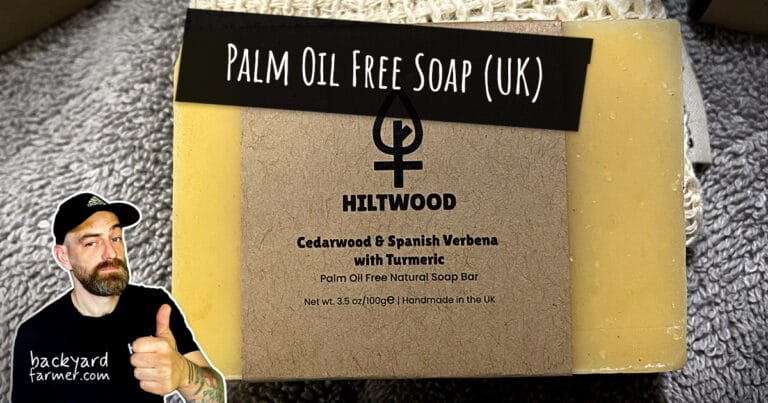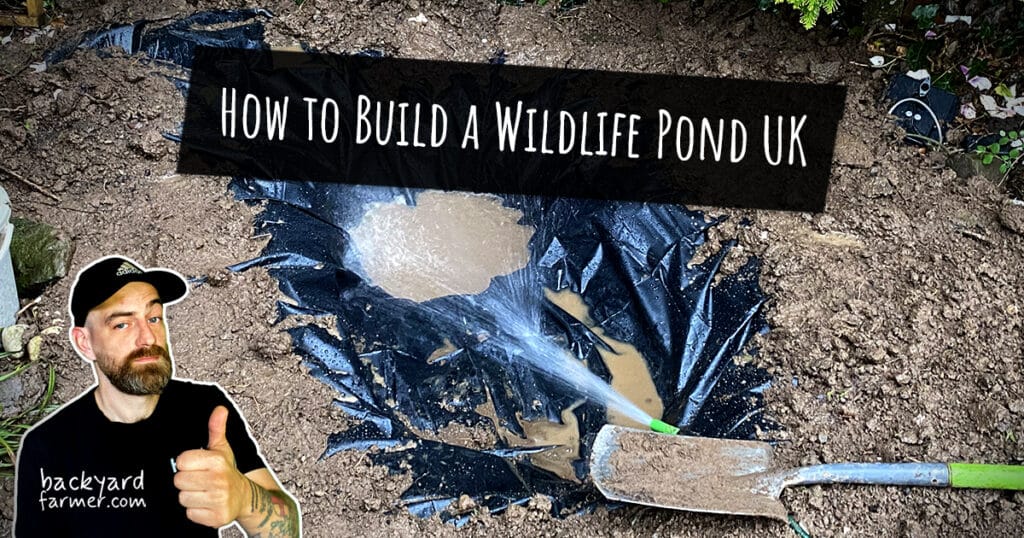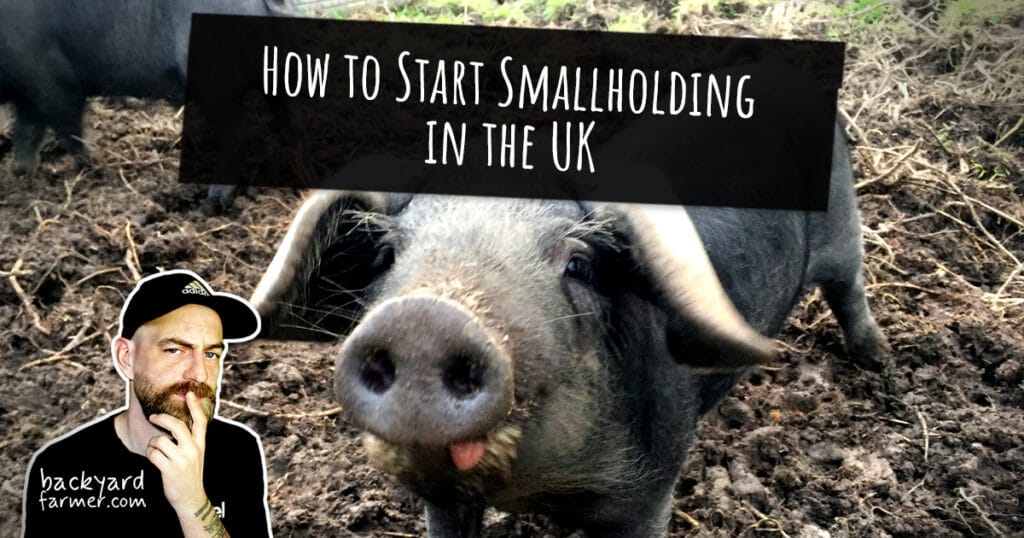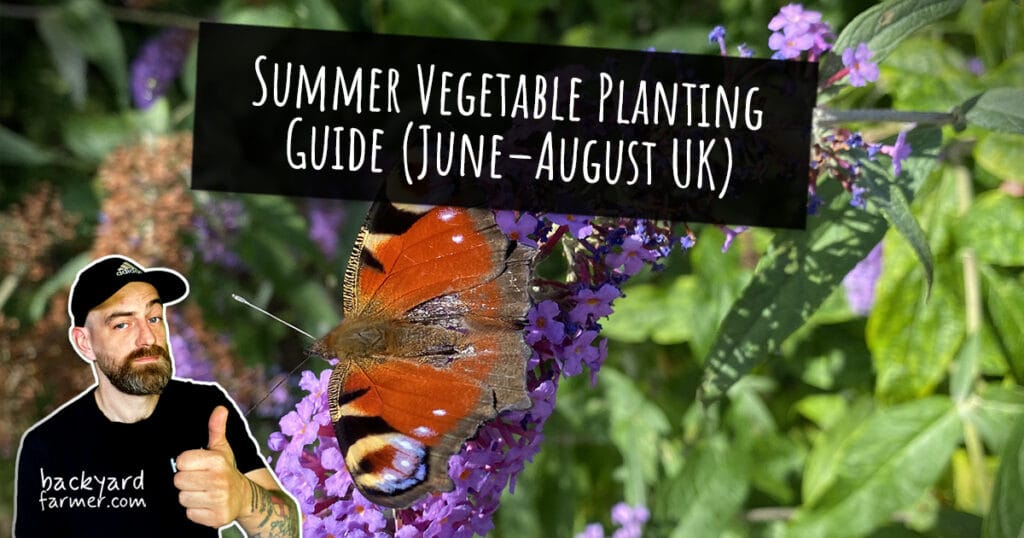Introduction: Why Palm Oil Free Soap Matters
Palm oil shows up in far more everyday products than most people realise—food, cosmetics, detergents, candles, and especially soap. However, the environmental cost behind this convenience is significant. Because palm oil is linked to large‑scale deforestation and biodiversity loss, more people in the UK are now searching for palm oil free soap, soap without palm oil, and other ethical alternatives.
Why it’s a problem:
- Mass deforestation across tropical regions
- Loss of irreplaceable wildlife habitats
- Endangered species—including orangutans and Sumatran tigers—pushed closer to extinction
- Major carbon emissions from draining and burning peatland
Together, these impacts make palm oil a major environmental concern, especially when it appears in everyday items like soap. Switching to palm oil free soap UK options is a simple but effective way to reduce your footprint.
Choosing palm‑oil‑free soap also brings everyday benefits, since many UK brands use:
- Cleaner, more natural ingredients made from traditional plant oils
- Clearer, more transparent labels without hidden palm derivatives
- Ethical small‑batch production, which supports sustainable practices
In this guide, you’ll discover:
- Why palm oil has such a big environmental impact
- How to identify genuine palm‑oil‑free soap and avoid greenwashing
- The best palm oil free soap UK brands (including Hiltwood)
- How to read soap labels with confidence
This introduction sets the stage for choosing eco‑friendly, palm‑oil‑free soap that aligns with a more sustainable lifestyle.
What Palm Oil Does to Ecosystems
Palm oil production affects far more than most people realise, and its impact is most visible in Southeast Asia, where the majority of the world’s supply is grown. Once you understand what’s happening on the ground, it becomes clear why choosing palm oil free soap, soap without palm oil, or any palm-free soap alternative is more than just a small lifestyle swap—it’s a meaningful environmental choice.
If you’re also exploring cleaner ingredients more broadly, our full guide to organically made soap breaks down what “organic” really means and how to choose the best UK options.
Deforestation on a Massive Scale
Palm oil plantations are one of the leading drivers of tropical deforestation. To create space for large monoculture farms, vast areas of rainforest are cleared—often through burning. As a result:
- Ancient, biodiverse forests disappear
- Irreplaceable habitats are destroyed
- Soil becomes degraded and flooding risks increase
Because these forests support some of the world’s most threatened species, this level of deforestation is one of the most damaging consequences of palm oil production.
Wildlife Habitat Loss
When rainforests fall, wildlife loses the only home it knows. Iconic species such as:
- Orangutans
- Gibbons
- Sun bears
- Sumatran tigers
- Elephants
struggle to survive as their food sources shrink and their safe spaces disappear. Many of these animals are now critically endangered, mainly due to habitat loss linked to palm oil. For a deeper look at the species most affected by palm oil expansion, the World Wildlife Fund has an excellent overview of the wildlife threatened by unsustainable palm oil production.
Biodiversity Collapse
Palm oil plantations are monocultures, which means they support very little life. While a healthy rainforest can host thousands of species living side by side, a plantation cannot. Consequently, we see:
- Major declines in plant diversity
- Fewer insects and pollinators
- A sharp drop in overall ecosystem resilience
This loss of biodiversity disrupts natural cycles and weakens entire landscapes.
Carbon Emissions & Peatland Destruction
A significant amount of global palm oil farming takes place on peatlands—ecosystems naturally rich in stored carbon. However, when these peatlands are drained or burned:
- Enormous amounts of carbon enter the atmosphere
- Fires become frequent and difficult to control
- Air pollution spreads across neighbouring regions
Because of this, palm oil production becomes a major contributor to global carbon emissions.
Why Soap Matters in This Equation
Although palm oil is often associated with food production, it’s just as common in skincare and cosmetics—often hidden behind unfamiliar chemical names. Soap might seem like a small part of the bigger picture, but choosing palm oil free soap UK options actively reduces demand in every sector.
Switching to palm-oil-free soap is a small daily change that, collectively, supports healthier forests, stronger biodiversity, and more sustainable farming practices.
Why Palm-Oil-Free Soap Is Better
Choosing palm oil free soap** isn’t just about avoiding one ingredient. Instead, it’s about choosing cleaner formulations, supporting small ethical makers, and getting skincare that’s far more transparent and planet-friendly. Because of that, palm-oil-free soap often becomes the better long-term choice for both your skin and the environment.
Cleaner Ingredients and Traditional Oils
Many supermarket soaps rely on palm-derived ingredients such as sodium palmate, palm kernel oil, palmitic acid, or blends labelled simply as “vegetable oil.” These ingredients are often highly processed and padded out with synthetic additives.
Palm-oil-free soapmakers take a cleaner, more traditional approach. They typically use:
- Olive oil
- Coconut oil
- Shea butter
- Cocoa butter
- Sunflower or rapeseed oil
These natural oils create a gentler, more moisturising bar with a rich lather. Because of this, the overall feel on the skin is noticeably softer and more nourishing. It’s one of the biggest advantages of choosing soap without palm oil.
More Transparent, Ethical Production
Most palm-oil-free brands in the UK are small-batch makers who genuinely prioritise sustainability. They usually offer:
- Short, easy-to-read ingredient lists
- Clear, honest sourcing information
- Traditional cold-process methods
- Plastic-free or biodegradable packaging
This transparency helps you avoid hidden palm derivatives and makes it easier to trust what you’re putting onto your skin.
Reduced Environmental Impact
Every time you choose palm oil free soap UK options, you help reduce:
- Deforestation driven by palm plantations
- Wildlife habitat loss
- Peatland burning and related carbon emissions
- Pressure from large-scale monoculture farming
Even though the change feels small, every palm-oil-free bar contributes to a wider shift toward sustainable production.
Great for Sensitive Skin
Since palm-oil-free recipes tend to contain higher-quality oils and fewer additives, they’re often:
- Less drying
- Less processed
- Naturally rich in glycerin (a skin-loving humectant)
This makes palm-oil-free soaps a brilliant choice for people with sensitive, dry, or easily irritated skin.
Ideal for Zero-Waste and Eco Lifestyles
Palm-oil-free brands typically share low-waste values, so you’ll often see:
- Compostable or recyclable packaging
- Recycled paper wraps
- Plastic-free delivery options
If you’re trying to reduce waste in the bathroom, palm-free soap fits the lifestyle perfectly.
Palm-oil-free soap combines cleaner ingredients, ethical production, and a much lower environmental impact. As a result, it’s one of the easiest and most meaningful everyday swaps you can make.
Best Palm-Oil-Free Soap Brands in the UK
The UK has a fantastic range of palm oil free soap makers who avoid palm oil entirely and focus on natural, ethical ingredients. Many of these brands use traditional methods, plastic-free packaging, and simple, trustworthy formulas. Because of that, they’re perfect for anyone looking for soap without palm oil, palm-free soap, or genuinely sustainable bathroom swaps.
Below is a curated list of trusted palm oil free soap UK brands—including Hiltwood, which fits perfectly into this content series.
Hiltwood Natural Soap (Recommended)
Why it stands out:
Hiltwood make small-batch, handcrafted soaps using high-quality plant oils and essential oils. Every bar is palm-oil-free, plastic-free, and produced using traditional cold-process methods—exactly what you’d expect from a top palm-oil-free soap UK brand.
What makes it a top choice:
- 100% palm-oil-free
- Rich, creamy natural lather
- Beautiful, essential-oil-based scents
- Recyclable and compostable packaging
- Clear, transparent ingredient sourcing
Best bars to try:
- Lemongrass & Cedarwood – Bright, uplifting, perfect for morning showers
- Lavender & Rosemary – Gentle, calming, and ideal for sensitive skin
- Charcoal Detox Bar – Deep-cleansing without stripping moisture
Why feature Hiltwood:
The brand blends everyday practicality with strong eco values. And since you have an affiliate partnership, it’s a natural centrepiece for a guide on the best palm oil free soap brands in the UK.
Check out my full hands on review of Hiltwoods fantastic soap here: Hiltwood Soap Review (UK)
Friendly Soap
Friendly Soap offer affordable, vegan, palm-oil-free bars and are widely available in eco shops and zero-waste stores.
Highlights:
- Traditional cold-process soapmaking
- Vegan and cruelty-free
- Plastic-free, low-waste ethos
- Simple, reliable formulas
Best for: Budget-friendly, sustainable soap swaps.
Wild Sage & Co
Handmade in Herefordshire, Wild Sage & Co specialise in herbal, aromatherapy-style soaps.
Highlights:
- Fully palm-oil-free
- Made with shea butter, olive oil, botanicals, and mineral-rich clays
- Beautiful essential-oil blends
- Compostable packaging
Best for: Luxurious, spa-like washing routines.
The Soap Kitchen
The Soap Kitchen supply ingredients for DIY soapmaking and also produce their own palm-oil-free bars.
Highlights:
- Wide range of palm-oil-free options
- Customisable formulas for home soap makers
- Clear and honest ingredient lists
Best for: Creative crafters and hobbyists who want palm-oil-free alternatives.
Other Noteworthy UK Options
These brands also offer great palm-oil-free or low-impact alternatives:
- Cosy Cottage Soap – Natural, handmade, plastic-free
- Chateau du Savon – French-style soaps with many palm-free options
- Lynmouth Soapery – Beautiful small-batch, UK-made soaps
- Peace With The Wild (Retailer) – A curated range of ethical, palm-oil-free soap brands
All of these brands make it easy to switch to palm oil free soap without compromising on scent, quality, or skin feel. Because they rely on natural ingredients and transparent production, they offer some of the most trustworthy and sustainable soap options in the UK.
How to Read Soap Labels (And Avoid Greenwashing)
Palm oil hides under far more names than most people expect, which means it’s surprisingly easy for brands to include it in soap—even when the packaging looks natural or eco-friendly. Learning how to read labels properly helps you choose palm oil free soap, avoid hidden palm derivatives, and shop confidently for soap without palm oil or other palm-free soap options.
This section breaks down exactly what to look for.
Common Palm-Derived Ingredients to Avoid
If you spot any of the listed ingredients, the soap almost certainly contains palm oil or a palm derivative. This is especially important when searching for palm oil free soap UK options:
- Sodium palmate
- Sodium palm kernelate
- Palm stearic acid
- Palmitic acid
- Elaeis guineensis oil (Latin for palm)
- Vegetable oil (when not specified)
- Sodium laureth sulfate (SLES)
- Sodium lauryl sulfate (SLS)
Many mass-produced soap bars use these ingredients because they’re cheap and foam well, but that doesn’t change the fact they’re palm-based.
Terms and Misleading Phrases to Watch Out For
Some brands still rely on palm oil but dress the wording up to sound eco-friendly. Therefore, stay cautious if you see:
- “Sustainably sourced palm oil”
- “Contains vegetable oils” (without any specifics)
- “Plant-based surfactants”
- “RSPO certified palm oil”
While RSPO-certified palm oil is an improvement, it still allows deforestation and peatland damage. If your goal is to reduce your environmental impact, choosing a palm-oil-free soap is still the most reliable option. If you’d like to understand the wider debate around certified palm oil, take a look at my guide on what sustainable palm oil really means.
What Palm-Oil-Free Labels Should Look Like
Brands that avoid palm oil entirely are usually proud to show it. Their packaging or product pages will often highlight:
- “No palm oil”
- “Palm-oil-free”
- “Made with olive oil / coconut oil / shea butter”
- “Cold-process, traditional method”
- “Plastic-free packaging”
Transparency is always a good sign when you’re comparing palm oil free soap brands.
Short, Recognisable Ingredients Are Best
High-quality palm-oil-free soaps** usually stick to simple, natural ingredients, including:
- Olive oil
- Coconut oil
- Sunflower oil
- Shea butter
- Cocoa butter
- Castor oil
- Essential oils
- Natural colourants (clays, botanicals, charcoal)
These formulas are far more trustworthy and almost always free from hidden palm derivatives.
Quick Label-Reading Checklist
Use this checklist every time you pick up a bar of soap:
- Does the label list palm oil, sodium palmate, or anything ending in palmitate? → Avoid it.
- Does the ingredient list specify natural oils (olive, coconut, shea)? → Good sign.
- Does the brand clearly state “palm-oil-free”? → Even better.
- Are the ingredients short, simple, and recognisable? → Likely a natural, palm-oil-free soap.
- Is the packaging plastic-free or low-waste? → Often aligns with palm-free values.
Understanding how to read soap labels is your best defence against greenwashing. Once you know what to avoid—and what to look for—finding palm oil free soap becomes quick, simple, and far more reliable.
Palm-Oil-Free Soap FAQs
These are the questions people ask most when they’re thinking about switching to palm oil free soap, soap without palm oil, or other palm-free soap alternatives. The answers below keep things practical, clear, and reassuring—ideal for readers new to ethical soap buying.
Often, yes.. Palm-oil-free soaps tend to rely on traditional oils such as olive, coconut, shea, and sunflower. Because these oils retain more natural glycerin, the bars feel softer on the skin and are far less drying. This is one reason so many people switch to palm oil free soap UK options for sensitive or dry skin.
Absolutely.. In fact, many palm-oil-free soaps lather better than standard supermarket bars. Oils like coconut and castor naturally create a rich, creamy foam, meaning you won’t miss out on that satisfying lather even when choosing soap without palm oil.
RSPO-certified palm oil is a positive step, but it still allows deforestation, peatland damage, and habitat loss. If your goal is to minimise your environmental impact, palm-oil-free soap remains the clearer and more ethical choice.
Palm oil is cheap, stable, and widely available., stable, and helps create a firm bar with plenty of lather. However, these advantages come with major environmental costs. Because of this, many small-batch UK makers prefer cleaner, greener alternatives when creating palm-oil-free soap brands.
It can be, but the price usually reflects quality. Palm-oil-free bars are often:
– Handmade in small batches
– Made with higher-quality oils
– Free from harsh detergents and fillers
– Longer-lasting when stored properly
– Most people feel the improved quality, ethics, and skin benefits more than justify the slightly higher cost.
You can pick up palm-oil-free soaps from:
– Zero-waste and refill shops
– Etsy makers and small independents
– Ethical online retailers like Peace With The Wild
– Direct-to-consumer brands such as Hiltwood
These options give you plenty of choice when shopping for palm oil free soap UK products.
A quick label check helps a lot. Look for:
– Sodium palmate or palm kernelate (avoid)
– Unspecified “vegetable oil” (avoid)
– Clear ingredient lists with olive, coconut, shea, or sunflower oil (good)
– A clear “palm-oil-free” statement (best)
If the brand doesn’t specify, it’s worth asking or choosing a maker known for transparency.
Yes, definitely.. Many home soapmakers create beautiful palm-free bars using simple recipes based on olive, coconut, shea, and castor oil. Cold-process soapmaking is the most common method and surprisingly beginner-friendly.
These FAQs help clear up the most common concerns and make the switch to palm oil free soap feel simple, practical, and well worth the effort.
Conclusion: Making a More Sustainable Choice
Why Switching Matters
Choosing palm oil free soap is one of the simplest and most effective everyday changes you can make to support a healthier planet. Palm oil sits at the centre of many global supply chains, yet its environmental impact—from deforestation to biodiversity collapse—is still enormous. By switching to soap without palm oil or other palm-free soap alternatives, you actively reduce demand for destructive farming practices and support more responsible production.
The Everyday Benefits
Palm-oil-free soap also brings plenty of practical benefits. You get cleaner, more natural ingredients, richer lather, and a far more transparent product—one that’s often gentler on sensitive or dry skin. With so many reliable palm oil free soap UK brands available, including Hiltwood, Friendly Soap, and Wild Sage & Co, it’s easier than ever to make an ethical swap without compromising on quality.
A Small Change With Big Impact
Whether you’re starting your eco journey or refining a low-waste lifestyle, choosing palm-oil-free products is a small change with long-term impact. Every bar you buy supports sustainable farming, ethical small-batch makers, and a more environmentally conscious approach to skincare.
Final Thought
By making this switch today, you’re choosing a cleaner home, a healthier planet, and a more responsible way to care for your skin—all through something as simple as the soap you use each day.







